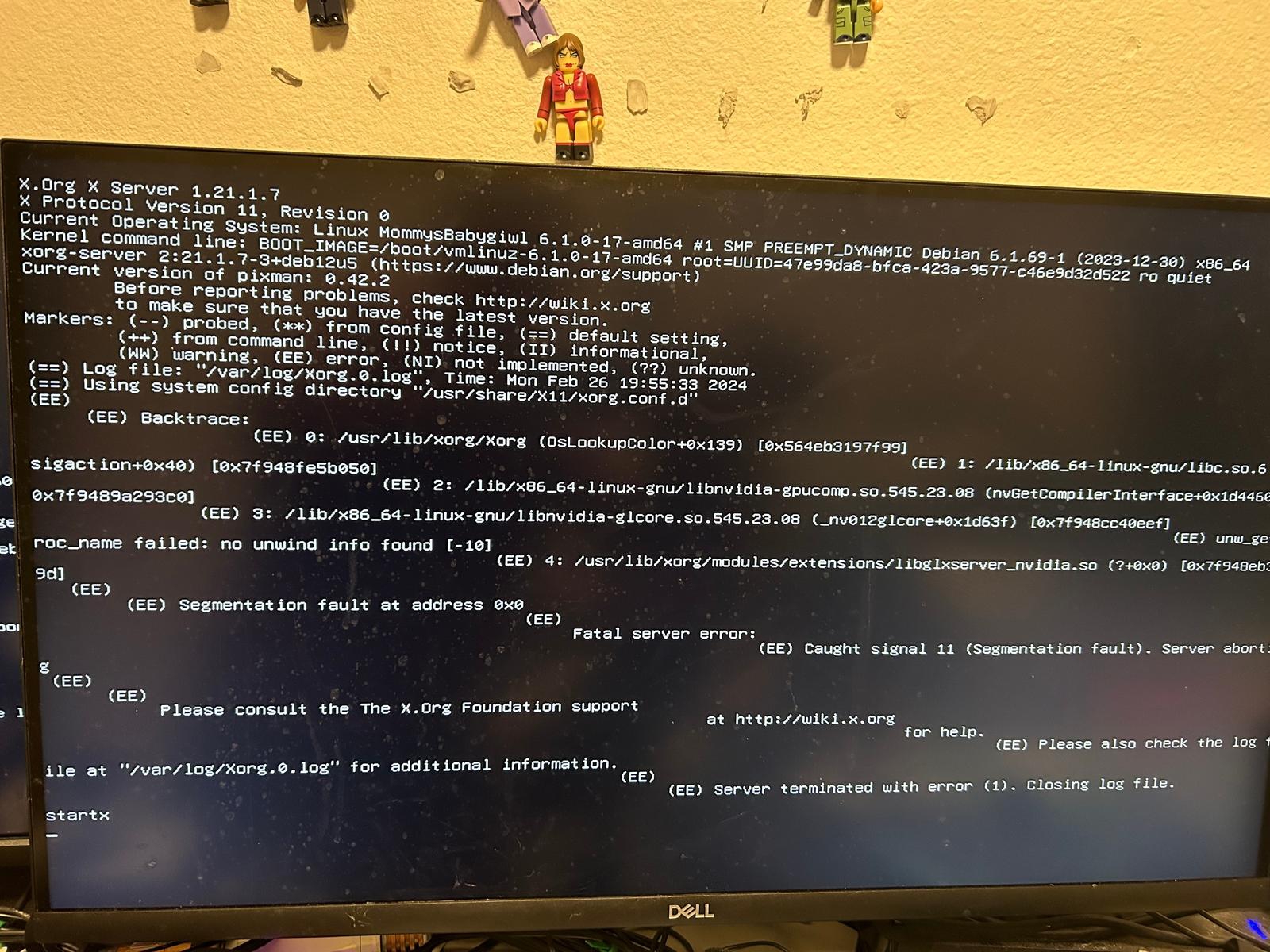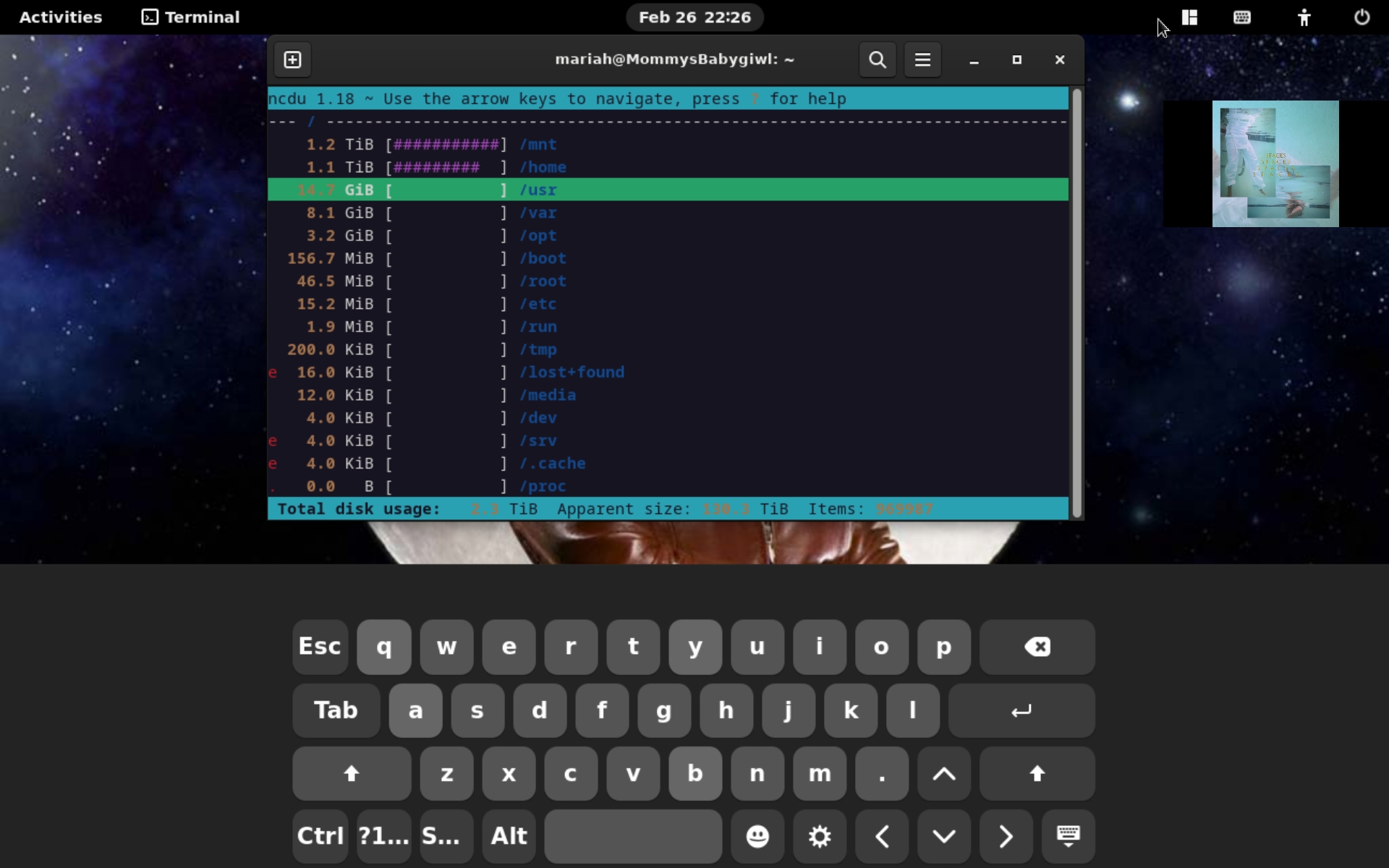this post was submitted on 27 Feb 2024
100 points (91.0% liked)
Linux
48176 readers
864 users here now
From Wikipedia, the free encyclopedia
Linux is a family of open source Unix-like operating systems based on the Linux kernel, an operating system kernel first released on September 17, 1991 by Linus Torvalds. Linux is typically packaged in a Linux distribution (or distro for short).
Distributions include the Linux kernel and supporting system software and libraries, many of which are provided by the GNU Project. Many Linux distributions use the word "Linux" in their name, but the Free Software Foundation uses the name GNU/Linux to emphasize the importance of GNU software, causing some controversy.
Rules
- Posts must be relevant to operating systems running the Linux kernel. GNU/Linux or otherwise.
- No misinformation
- No NSFW content
- No hate speech, bigotry, etc
Related Communities
Community icon by Alpár-Etele Méder, licensed under CC BY 3.0
founded 5 years ago
MODERATORS
you are viewing a single comment's thread
view the rest of the comments
view the rest of the comments

Hmm, interesting. That tells us that it's not actually a problem with your graphics driver or kernel version, and given that it was working on this version before, I would think some aspect of Xorg configuration, your graphics hardware has an issue, or your installation in general has been corrupted when it tried to upgrade.
You might try to detect corruption by using a tool like
debsumsto check for any obviously corrupted files.What's the state of your debian packages I wonder... does something like
apt-get updateorapt-get checkhighlight any problems with the state of installed packages that could point to a failed upgrade?I think its because / is full. Some packages cant update. Is there a way to combine them without gui as i am disabled and cant use a mouse? I know u cant edit partitions booted
If you can boot into terminal session, e.g. by pressing Ctrl + Alt + F2, you can try:
If sudo apt -f install doesn't work properly, you can create an apt-cache folder on, e.g. your home partition, assuming this is the one with sufficient amounts of free storage.
In the fstab you specify where this directory shall be mounted:
Now you copy the files in place and mount the partition:
Nou you should be able to run the fix-installation and update commands without the errors:
I booted into i3!
This means good news?
Yes so what now
Do you have sufficient disk space now? Or did the mounting procedure work? Did sudo apt -f install work?
Mounting and sudo apt -f install worked. So does stuff install in /home/apt-cache now? I do want to combine / and /home
My recommendation would be to copy your entire home directory with rsync -a onto another (external) drive, as you anyway don't want to modify your partitions without having a backup. Then boot into a live distribution and open a partition editor, delete the home partition (the data on it will be lost), expand the root partition (/) onto the entire disk. Finally copy the backup back into the home folder using rsync -a
Ok. Does rync -a copy hardlinks
No, only softlinks. See it's man page. AfaIk, rsync -a is usually used for backup.
-H can tho
A full root will absolutely kill your system.
You have unlocked a new achievement: the software hoarder!
Yay. What did i win
This may seem like an obvious question, but are there files you can remove or perhaps move to another drive or USB stick temporarily to make enough space to get through your updates? You should be able to do those while rootfs is full.
We can certainly delete or copy files using the terminal.
Are you sure the root is full and not readonly due to other errors? Why do you believe root is full?
duf / lists 0gb as available. Idk what i should move
Here's a guide I found online that has some commands that might help you figure out where your storage has gone:
https://askubuntu.com/questions/266825/what-do-i-do-when-my-root-filesystem-is-full
How big is the partition?
27.3gb
This is / /mnt has my 2nd hard drive. /usr is big because of wine
/mnt has my 2nd hard drive. /usr is big because of wine
ncdu -x / will only show you the files stored on / without counting /mnt and other partitions.
You can usually delete files (not directories!) in /var/log safely